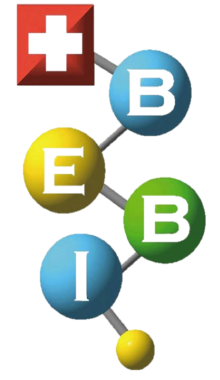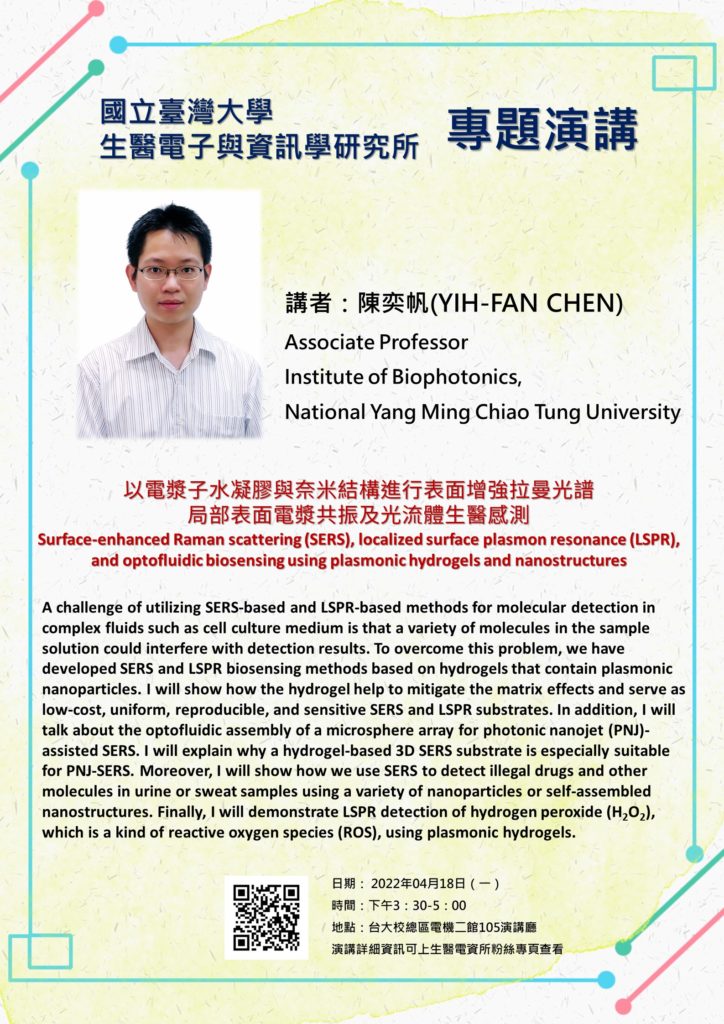◆專題演講公告◆
時間:111年04月18日(一) 15:30-17:00
地點:改線上演講,演講連結:https://meet.google.com/zjy-brvk-vjz
講者:陳奕帆教授 國立陽明交通大學生醫光電研究所
講題:以電漿子水凝膠與奈米結構進行表面增強拉曼光譜、局部表面電漿共振及光流體生醫感測
Surface-enhanced Raman scattering (SERS), localized surface plasmon resonance (LSPR), and optofluidic biosensing using plasmonic hydrogels and nanostructures
摘要:
A challenge of utilizing SERS-based and LSPR-based methods for molecular detection in complex fluids such as cell culture medium is that a variety of molecules in the sample solution could interfere with detection results. To overcome this problem, we have developed SERS and LSPR biosensing methods based on hydrogels that contain plasmonic nanoparticles. I will show how the hydrogel help to mitigate the matrix effects and serve as low-cost, uniform, reproducible, and sensitive SERS and LSPR substrates. In addition, I will talk about the optofluidic assembly of a microsphere array for photonic nanojet (PNJ)-assisted SERS. I will explain why a hydrogel-based 3D SERS substrate is especially suitable for PNJ-SERS. Moreover, I will show how we use SERS to detect illegal drugs and other molecules in urine or sweat samples using a variety of nanoparticles or self-assembled nanostructures. Finally, I will demonstrate LSPR detection of hydrogen peroxide (H2O2), which is a kind of reactive oxygen species (ROS), using plasmonic hydrogels.
Short Biography:
Yih-Fan Chen is an Associate Professor in the Institute of Biophotonics at the National Yang Ming Chiao Tung University. Before starting his tenure track job, he was a postdoctoral fellow at the Kavli Institute at Cornell for Nanoscale Science (Aug. 2010 – July 2011) and a technical consultant at Optofluidics, Inc. (Dec. 2010 – July 2011). He received his M.S. and Ph.D. degree in Biomedical Engineering from the University of Michigan, Ann Arbor in 2007 and 2010, respectively, and he received his M.S. degree in Applied Mechanics from National Taiwan University, Taipei, Taiwan in 2004. His current research interests include surface-enhanced Raman spectroscopy (SERS), localized surface plasmon resonance (LSPR) biosensing, optofluidic biosensing and nanomanipulation, and portable biosensing devices.

